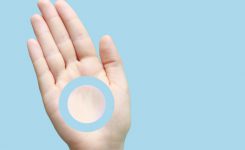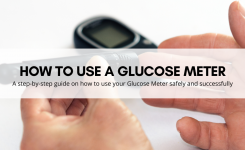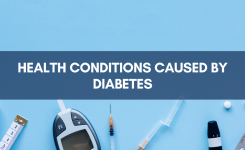Blog
What the Coronavirus Means for People with Diabetes
As the coronavirus outbreak continues to spread across the Philippines, health experts warn us that people with pre-existing conditions must exercise increased precautions against the disease. While they are not more likely to catch the virus, the complications that they may experience when they do get it are far more serious and possibly fatal than COVID-19 patients without pre-existing conditions.
For persons with diabetes, the disease can cause their blood sugar to fluctuate. As a way to give the body the energy it needs to fight off the virus, stored glucose is automatically released into the bloodstream. For persons with diabetes, however, the incapability to produce the necessary insulin to cope with this could trigger the blood sugars to rise. The continuous and often uncontrollable shift in blood sugar levels during this time could cause long-term harm to a person with diabetes’ health, particularly for their eyes, feet and other areas of the body.
That is why, aside from the generally advised social distancing and hygienic guidelines, people with diabetes must practice these added protective measures to keep themselves healthy and safe from the COVID-19.
Be in constant contact with your diabetes adviser or nurse.
Follow their advice, particularly in regards to your medication. In keeping with social distancing protocols, it is best to do consultations via calls and emails. Do not go to the pharmacy or hospital unless it is absolutely necessary.
Observe your diet and stay hydrated.
Drink lots of unsweetened drinks. Eat less and often.
Watch out for signs of hyperglycemia.
If you do not monitor your glucose regularly, observe your own health status. If you are urinating more than usual (especially at night), constantly thirsty, and experiencing headaches, tiredness, and lethargy, consult your health adviser immediately.
Check your blood sugar more frequently.
If you do perform regular glucose monitoring, consult your adviser if you’d need to have it checked more often than usual. This is especially important if you are a PUI or PUM. It is advisable for people with Type 1 diabetes to have theirs checked 4 times daily, including at night. If your glucose level is noticeably high, notify your health adviser immediately.
For people with diabetes, keeping the sugar level in check is more important than ever. Manage your diabetes monitoring with ease and comfort with the GluNEO Lite glucose meter. If you’re interested in purchasing our glucose meter, simply accomplish the form below to request for a quotation.
Sources:
Updates: Coronavirus and diabetes – Diabetes UK
Diabetes and COVID-19 – Endocrine Web








